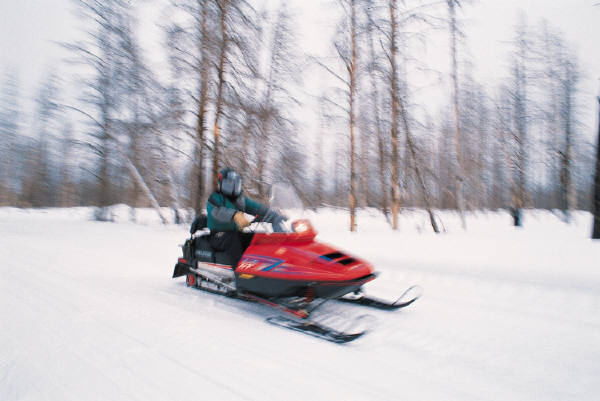 Donavon Curtis was riding his snowmobile through trails of the Town of Inlet, New York, when he suddenly came upon a "Y" in the road. Inexplicably, he elected to go straight, careened over an embankment, and fell into a ravine. When a personal-injury case was later filed, the Town denied responsibility, claiming Curtis "assumed the risk" by engaging in the activity.
Donavon Curtis was riding his snowmobile through trails of the Town of Inlet, New York, when he suddenly came upon a "Y" in the road. Inexplicably, he elected to go straight, careened over an embankment, and fell into a ravine. When a personal-injury case was later filed, the Town denied responsibility, claiming Curtis "assumed the risk" by engaging in the activity.
"Assumption of risk," a tort defense, allows a party to be relieved of responsibility for an accident if it can be established that the injured individual was "aware of the allegedly defective or dangerous condition and the accompanying risk." While the exact injury need not be foreseen, the participant must be aware of the potential for injury. This "awareness" of the risk will not be determined in a vacuum. Courts will typically look at the injured person's skill sets and life experiences and will apply a higher standard of knowledge to a professional athlete than a person with limited experience in that particular sport.
In Curtis v. Town of Inlet , the Town moved for summary judgment claiming that the perils Curtis encountered were part and parcel of snowmobiling. While The Herkimer County Supreme Court granted the Town's motion, that outcome was reversed by the Appellate Division, Fourth Department.
The AD4 found that the Town had not demonstrated -- to that court's satisfaction -- that the accident was caused by an "inherent risk" of snowmobiling. Nor was it established that the trail was free from all defects. In the absence of that proof, the court was of the opinion that the case needed to proceed to trial.
Frankly, we were flummoxed by the outcome of this case.
Shouldn't a rider be charged with some responsibility for deviating from the trail?
After all, you don't really have to be that smart, or sophisticated, to appreciate that bad things are apt to happen when you stray from the path.

For a copy of the Appellate Division's decision, please use this link: Curtis v. Town of Inlet
